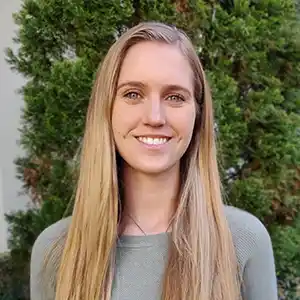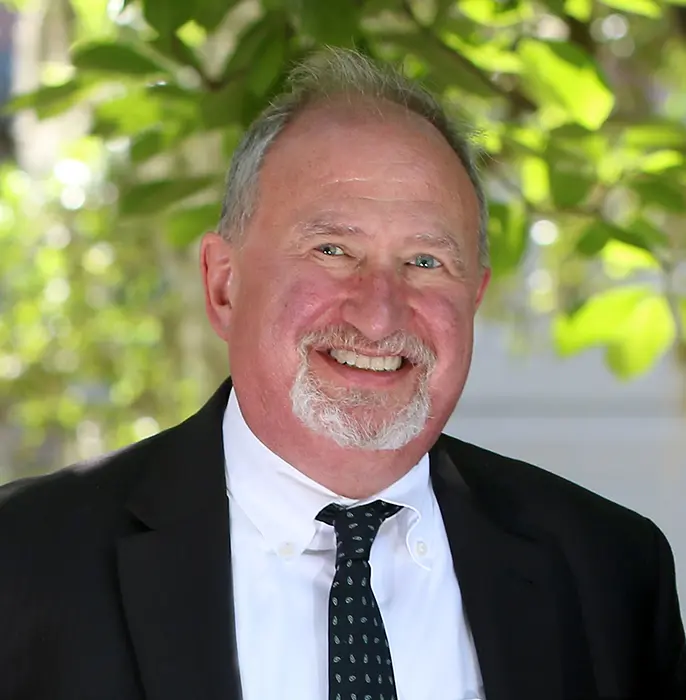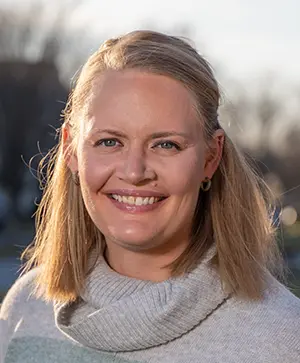Genomics and Precision Public Health Training Course
In the past decade, genomics, and precision health approaches such as big data science and machine learning have emerged as important tools for public health. Those entering the public health and medical workforces must keep pace with these evolving fields to maximize the benefit to public health. Recognizing this need, ORISE is partnering with the Office of Genomics and Precision Public Health at the Centers for Disease Control and Prevention to offer a two-day enrichment event covering the latest developments in these fields.
The course is a series of 15-60 minute lectures, grouped by topic, with learning objectives for each lecture. The course is freely available to all ORISE fellows. Online materials include a video recording of each lecture, a slide presentation, and, for some lectures, recommended readings and questions for discussion and knowledge assessment.
Additional Information
Learning Modules
|
Introduction to the Course: What is Precision Public Health? (video) Muin Khoury, Office of Genomics and Precision Public Health, CDC |
|
Genomics in the Practice of Medicine and Public Health (video) Slidedeck (.PDF, 9MB)Bruce Korf, The University of Alabama at Birmingham |
|
Genomic Epidemiology: Linking Precision Health and Populations (video) Slidedeck (.PDF, 2.9MB) Marta Gwinn, Emory University |
|
ORISE Fellow Experience Presentation (video) Slidedeck (.PDF, 1.4MB) Emily Drzymalla, Office of Genomics and Precision Public Health, CDC |
|
Slidedeck (.PDF, 1.7MB) Stuart Shapira, National Center on Birth Defects and Developmental Disabilities, CDC |
|
Precision Public Health as a Primary Strategy for Reaching Health Equity (video) Slidedeck (.PDF, 4.2MB) George Mensah, National Heart, Lung, and Blood Institute, NIH |
|
Slidedeck (.PDF, 10.3MB) Zeeshan Ahmed, Institute for Health, Health Care Policy and Aging Research, Rutgers University |
|
Precision Health Technologies from Medicine to Public Health Impact (video) Slidedeck (.PDF, 4MB) Leslie Lenert, Medical University of South Carolina |
|
Slidedeck (.PDF, 7.3MB) Matt Maenner, Child Development and Disability Branch, CDC |
|
Slidedeck (.PDF, 3.7MB) Dave Dotson, Office of Genomics and Precision Public Health, CDC |
|
Effective Use of Behavioral, Communication and Social Sciences for Precision Public Health (video) Slidedeck (.PDF, 2.2MB) Caitlin Allen, Medical University of South Carolina |
|
Implementation Science – A Critical Element of Precision Public Health (video) Slidedeck (.PDF, 2.5MB) Megan Roberts, University of North Carolina Eshelman School of Pharmacy |
|
When is Precision Public Health Cost Effective? Health Services and Economics Research (video) Slidedeck (.PDF, 1.3MB) Scott Grosse, National Center on Birth Defects and Developmental Disabilities, CDC |
|
Slidedeck (.PDF, 15.8MB) Ellie Click, Office of Advanced Molecular Detection, CDC |
|
Newborn Screening Today – a Dynamic Application of Precision Public Health (video) Slidedeck (.PDF, 4MB) Amy Gaviglio, Association of Public Health Laboratories |
|
Population Based Genomic Screening – Are We Ready? (video) Slidedeck (.PDF, 5.9MB) Mike Murray, Institute for Genomic Health, Icahn School of Medicine at Mount Sinai |
|
Pharmacogenomics – Because Every Person in the Population is Important and Unique (video) Slidedeck (.PDF, 8.4MB) Susanne B. Haga, Duke University School of Medicine |
|
The exposome and the Genome – Two Sides of the Same Coin (video) Slidedeck (.PDF, 7.7MB) Chirag Patel, Department of Biomedical Informatics, Harvard University |
|
Effective Educating of Providers in Precision Public Health (video) Slidedeck (.PDF, 2.9MB) Kate Reed, The Jackson Laboratory |
|
The All of Us Research Program and Precision Public Health (video) Slidedeck (.PDF, 7.8MB) Sheri Schully, All of Us Research Program, NIH |
|
Looking Ahead (video) Muin Khoury |
Speakers
Click on a speaker below to view their bio.

Bruce Korf
The University of Alabama at Birmingham
View Bio
Dr. Korf is the Associate Dean for Genomic Medicine, School of Medicine; Chief Genomics Officer, UAB Medicine; Wayne H. and Sara Crews Finley Endowed Chair in Medical Genetics, Professor of Genetics, Co-Director of the UAB-HudsonAlpha Center for Genomic Medicine, Associate Director for Rare Diseases, Hugh Kaul Personalized Medicine Institute and editor-in-chief of the American Journal of Human Genetics. Dr. Korf is past president of the Association of Professors of Human and Medical Genetics, past president of the American College of Medical Genetics and Genomics, and current president of the ACMG Foundation for Genetic and Genomic Medicine. He has served on the Board of Scientific Counselors of the National Cancer Institute and the National Human Genome Research Institute at the NIH. His major research interests are genomic medicine and the natural history, genetics, and treatment of neurofibromatosis. He serves as principal investigator of the Department of Defense funded Neurofibromatosis Clinical Trials Consortium, and co-PI of the Alabama Genomic Health Initiative and the All of Us Southern Network. He is co-author of Human Genetics and Genomics (medical student textbook, now in fourth edition), and Emery and Rimoin’s Principles and Practice of Medical Genetics.

Stuart Shapira
National Center on Birth Defects and Developmental Disabilities, CDC
View Bio
Stuart K. Shapira, MD, PhD is Associate Director for Science and Chief Medical Officer for the National Center on Birth Defects and Developmental Disabilities at the Centers for Disease Control and Prevention. Dr. Shapira received his PhD degree in Genetics and his MD degree, both from the University of Chicago. He completed a residency in Pediatrics and a clinical fellowship in Genetics and Metabolism at Boston Children’s Hospital. He also completed dual research fellowships in Genetics and Metabolism, and in Allergy and Immunology at Harvard Medical School. Dr. Shapira is board-certified in Clinical Genetics, Biochemical Genetics, and Molecular Genetics. Prior to joining the National Center on Birth Defects and Developmental Disabilities in 2005, Dr. Shapira practiced clinical genetics and metabolic genetics at Baylor College of Medicine in Houston and at the University of Texas Health Science Center in San Antonio.
Dr. Shapira currently serves as chairman of the Dysmorphology Workgroup for the Centers for Autism and Developmental Disabilities Research and Epidemiology and the CDC alternate representative to the Interagency Autism Coordinating Committee and the Federal Agency Workgroup on Autism. His research activities include dysmorphology of autism, birth defects epidemiology, and newborn screening. Dr. Shapira has authored and coauthored more than 100 journal articles, book chapters, and abstracts, and he has been an invited speaker at numerous regional, national, and international scientific conferences.

Mathew Maenner
Child Development and Disability Branch, CDC
View Bio
Dr. Matthew Maenner is an epidemiologist and Chief of the Child Development and Disability Branch at the National Center on Birth Defects and Developmental Disabilities. Prior to this role, he led CDC’s Autism and Developmental Disabilities Monitoring Network, which tracks the prevalence of autism among children, progress in early identification, and needs of adolescents in multiple U.S. communities. Dr. Maenner received the Presidential Early Career Award in Science and Engineering for advancing developmental disabilities research and surveillance. He joined CDC in 2013 as an Epidemic Intelligence Service Officer assigned to the Developmental Disabilities Branch. He received a PhD in Population Health at the University of Wisconsin and completed a postdoctoral fellowship at the Waisman Center, University of Wisconsin-Madison, focused on intellectual and developmental disabilities research.

Dave Dotson
Office of Genomics and Precision Public Health, CDC
View Bio
W. David Dotson, PhD, MS, is a Health Scientist in the Office of Genomics and Precision Public Health at CDC. His expertise and research interests are primarily in evidence-based evaluation of genetic tests and population health. He has served as senior coordinating scientist with the Evaluation of Genomic Applications in Practice and Prevention (EGAPP) initiative and has been a member of the Evidence Evaluation Methods Workgroup for the Secretary’s Advisory Committee on Heritable Disorders in Newborns and Children and the RAND Molecular Genetic Test Report Advisory Board. He was a founding chief editor of PLoS Currents: Evidence on Genomic Tests, and currently serves as an associate editor for the Frontiers in Genetics specialty section on Ethical, Legal, and Social Implications (ELSI) in Science and Genetics.

Megan Roberts
Division of Pharmaceutical Outcomes and Policy and the Director of Implementation Science in Precision Health and Society at the UNC Eshelman School of Pharmacy
View Bio
Megan Roberts, Ph.D., is an assistant professor in the Division of Pharmaceutical Outcomes and Policy and the Director of Implementation Science in Precision Health and Society at the UNC Eshelman School of Pharmacy. Her research focuses on evaluating and improving the implementation of genomic medicine. In particular, she is interested in conducting research to understand how precision medicine technologies can be implemented to improve access to and reduce disparities in high-quality care and prevention. To date, her research has largely focused on the intersection between genomic medicine, health equity and implementation science including research about the implementation of population genetic screening, cascade screening for hereditary conditions, precision diagnostics in low resourced settings both globally and in the US, and building capacity for precision public health.

Mike Murray
Chief of the Division of Genomic Medicine and Clinical Director of the Institute for Genomic Health
View Bio
Dr. Mike Murray joined the Icahn School of Medicine at Mount Sinai in 2023, as Chief of the Division of Genomic Medicine and Clinical Director of the Institute for Genomic Health. He also currently serves as co-chair of the American College of Medical Genetics and Genomics’ Workgroup on Population Screening.
In 2019 he led the launch of “Yale Generations”, a health system based genomic health project that links genomic data with electronic health data in order to enable both research and patient care delivery. From 2013 to 2018 he was the Geisinger Health System’s first director of clinical genomics. At Geisinger he led the design and implementation of the GenomeFIRST program in 2015. Prior to his time at Geisinger he was on the faculty at Harvard Medical School and was the clinical chief of genetics at Brigham and Women’s Hospital in Boston for nine years.
He is a physician and is board certified in Internal Medicine and Medical Genetics. He currently serves as a member of the Board of Directors for the American College of Medical Genetics (ACMG).

Chirag Patel
Department of Biomedical Informatics, Harvard University
View Bio
Dr. Chirag Patel’s research goal is to address problems in human health and disease by developing computational and bioinformatics methods to efficiently reason over high-throughput data streams spanning molecules to populations. He aims to dissect inter-individual differences in human phenomes through strategies that integrate data sources that capture the comprehensive clinical experience, the complex phenomena of environmental exposure (e.g., high-throughput measures of the exposome), and inherited genomic variation. He received his PhD and MS in biomedical informatics from Stanford University in Biomedical Informatics.

Sheri Schully
All of Us Research Program, NIH
View Bio
Sheri Schully, Ph.D., is the deputy chief medical and scientific officer and the lead for ancillary studies in the All of Us Research Program at the National Institutes of Health. Through her leadership, she is establishing ancillary studies as a core and scalable capability of the program that will expand the cohort and deliver new phenotypic, lifestyle, environmental, and biological data to the All of Us Researcher Workbench. Dr. Schully has been involved with shaping the program and setting the scientific vision and strategy since its inception.
Prior to this role, she was a team lead and senior advisor for disease prevention in the Office of Disease Prevention (ODP). There, she led the effort to systematically monitor NIH investments in prevention research and assess the progress of that research. She also served as the team lead for the Knowledge Integration Team as well as a program officer in the Epidemiology and Genomics Research Program at the National Cancer Institute (NCI). She came to the NIH as an NCI-designated Presidential Management Fellow in 2005.
Dr. Schully's research interests include genomics, personalized medicine, and the integration of genetic and genomic information into clinical and public health practices. Her work has been published in numerous high-impact scientific journals. She earned both a Ph.D. in biological sciences with a concentration in population genetics and a B.S. in zoology with a minor in chemistry from Louisiana State University.

Scott Grosse
National Center on Birth Defects and Developmental Disabilities,
Centers for Disease Control and Prevention
View Bio
Scott Grosse is senior health economist in the Office of the Director of the National Center on Birth Defects and Developmental Disabilities, CDC, Atlanta, Georgia, where he has worked since earning his PhD in public health from the University of Michigan in 1996. He conducts health services research, economic evaluations, and policy analyses on rare disorders and neurodevelopmental conditions and associated risk factors. He has 25 years’ experience assessing the utility and cost-effectiveness of genetic testing approaches. He has coauthored more than 250 journal articles.

Susanne Haga
Duke University School of Medicine
View Bio
Dr. Haga is a Professor at Duke University School of Medicine, Department of Medicine, Division of General Internal Medicine, and the Program in Precision Medicine. She has secondary appointments in the Sanford School of Public Policy and the Department of Biology at Duke University, She oversees several education programs for in genetics and genome sciences and regularly teaches undergraduate courses in genomics, bioethics, and pharmacogenetics. Her research interests focus on issues affecting the translation of genomics to clinical practice, particularly in the field of pharmacogenetic testing, and exploring barriers and facilitators to test utilization.

Kate Reed
The Jackson Laboratory
View Bio
Kate Reed, MPH, ScM, CGC, directs the precision oncology education efforts in the Clinical Education Program at The Jackson Laboratory. The team focuses on developing and implementing education to facilitate the integration of genetics and genomics into clinical practice. Kate has over a decade of experience in clinical genetics, healthcare provider education, and program development and implementation. She is a board-certified genetic counselor and has previously practiced clinically in a variety of settings.

Zeeshan Ahmed
Institute for Health, Health Care Policy and Aging Research, Rutgers University
View Bio
Zeeshan Ahmed, PhD, is an Assistant Professor – Tenure Track in the Department of Medicine / Cardiovascular Disease and Hypertension, Division of General Internal Medicine, Rutgers Robert Wood Johnson Medical School; Rutgers Biomedical and Health Sciences; and Core Faculty Member at the Institute for Health, Health Care Policy and Aging Research, Rutgers - The State University of New Jersey, NJ.
Dr. Ahmed is an academic computational scientist, driven towards the development of Artificial Intelligence (AI), Machine Learning (ML), and bioinformatics applications for multi-omics/genomics, phenotypic, and clinical data management, processing, integration, annotation, interpretation, and sharing. His lab is focused on implementing AI/M approaches for discovering significant biomarkers associated and predicting cardiovascular disease with high accuracy using a novel nexus of AI/ML techniques for precision medicine. Overall, Dr. Ahmed has produced more than 75 peer-reviewed publications as the first/last corresponding author including manuscripts published in scientific journals, books, and conference proceedings.

Emily Drzymalla
ORISE fellow with the Office of Genomics and Precision Public Health
View Bio
Emily Drzymalla received a MPH from Emory University and she has been an ORISE fellow with the Office of Genomics and Precision Public Health for about two and a half years. She has an interest in epigenetics and neuropsychiatric conditions.

Ellie Click
Lead, Extramural Innovation, Office of Advanced Molecular Detection
View Bio
CAPT Ellie Click, MD, PhD joined the Office of Advanced Molecular Detection in 2021 as Lead for Extramural Innovation to foster advances in pathogen genomics and genomic epidemiology in public health through partnerships with academia and industry. In this capacity, she manages projects supported through broad agency announcements. Dr. Click also oversees the Pathogen Genomics Centers of Excellence network, established in 2022 to translate innovations in pathogen genomics for use in public health, respond to infectious disease threats, and expand workforce development.
Dr. Click brings to her role broad experience in public health and combining molecular and epidemiologic data and approaches. She joined CDC in 2009 as an Epidemiologic Intelligence Officer and worked for 10 years in global tuberculosis in the Division of Tuberculosis Elimination and Division of Global HIV and Tuberculosis. Her work spanned bench laboratory and international field studies in collaboration with academic partners and included use of molecular epidemiologic approaches to understand tuberculosis transmission and evaluation of molecular diagnostic tests. Prior to her current role, Dr. Click served as the Analytics Team Lead in the Enteric Diseases Epidemiology Branch of the Division of Foodborne, Waterborne, and Environmental Division, where she led a multidisciplinary team applying advanced epidemiologic and machine learning approaches to genomic and epidemiologic data to determine sources of enteric diseases. Before arriving at CDC, Dr. Click worked as a pediatrician to support scale-up of pediatric HIV treatment services in Malawi at multiple levels of the health system. She completed her MD and PhD in Genetics at Stanford University and is board certified in pediatrics.

George Mensah
Director of the Center for Translation Research and Implementation Science at the National Heart, Lung, and Blood Institute, NIH
View Bio
Dr. George Mensah is a clinician-scientist who currently serves as the Director of the Center for Translation Research and Implementation Science at the National Heart, Lung, and Blood Institute (NHLBI), a part of the National Institutes of Health (NIH). In this role, Dr. Mensah leads a trans-NHLBI effort to advance late-stage translational research and implementation science to address gaps in the detection, prevention, treatment, and control of heart, lung, and blood diseases and sleep disorders, and the elimination of related health inequities. His goal is to maximize the health impact of advances made in fundamental discoveries, clinical and translational research, and population science research. Dr. Mensah is an honors graduate of Harvard University. He obtained his medical degree from Washington University and trained in Internal Medicine and Cardiology at Cornell. His professional experience includes more than 20 years of public health service at the U.S. Department of Veterans Affairs, the Centers for Disease Control and Prevention (CDC), and the NIH. In addition to his public service, Dr. Mensah had 15 years of experience in direct patient care, teaching, and research at Cornell, Vanderbilt, and the Medical College of Georgia (MCG). He was a full professor with tenure at MCG and is currently a Visiting Full Professor at the University of Cape Town, South Africa. Dr. Mensah has been admitted to fellowships in several national and international societies including the American Heart Association, American College of Cardiology, and the European Society of Cardiology. He is an Honorary Fellow of the College of Physicians of South Africa and a Life Member of the Association of Black Cardiologists. His recent honors include the 2020 Alumni Achievement Award from Washington University School of Medicine; the 2020 Alpha Omega Alpha Medical Honor Society Visiting Professorship at Morehouse School of Medicine; and the 2020 Ancel Keys Memorial Lecturer at the American Heart Association Scientific Sessions. Dr. Mensah maintains active collaboration with several international groups to advance research on the global burden of diseases and risk factors.

Muin Khoury
Founding director of the CDC’s Office of Genomics and Precision Public Health
View Bio
Dr. Khoury is the founding director of the CDC’s Office of Genomics and Precision Public Health. Dr. Khoury has developed several successful ongoing national and international initiatives to translate advances in genomics and precision health technologies to recommendations and actions that improve health and prevent disease throughout the life stages.
Dr. Khoury received his B.S. degree in Biology/Chemistry from the American University of Beirut, Lebanon and his medical degree and Pediatrics training from the same institution. He received a Ph.D. in Human Genetics/Genetic Epidemiology and training in Medical Genetics from Johns Hopkins University. Dr. Khoury is board certified in Medical Genetics.
Dr. Khoury received the Public Health Service Special Recognition Award in 1990 for his outstanding contribution to the scientific literature in the areas of birth defects and genetic epidemiology. In 1994, he received the Arthur Fleming Award for outstanding government service. In 1998, Dr. Khoury was credentialed for the Senior Biomedical Research Service for outstanding contributions to public health. In 2000, he received the CDC Research Honor Award for outstanding national leadership in genetics and public health.
Dr. Khoury has published extensively in the fields of genetic epidemiology, public health genomics and precision public health. He is a member of many professional societies and serves on the editorial boards of several journals. He is a frequent keynote speaker at many academic institutions, professional organization meetings, as well as state, regional, national and international conferences. He also serves on several scientific, public health, and health policy national and international committees. He is an adjunct professor in the Departments of Epidemiology and Environmental and Occupational Health at Emory University Rollins School of Public Health and an associate in the Department of Epidemiology at Johns Hopkins University Bloomberg School of Public Health.

Marta Gwinn
Consultant, Retired, US Public Health Service and CDC
View Bio
Marta Gwinn is a medical epidemiologist, retired from the US Public Health Service and CDC, where she now serves as a consultant. She worked in HIV surveillance for about ten years, during the decade when PCR evolved from a new invention to the workhorse it is today. An interest in genomic technology and what it could do for epidemiology and public health led her to join Dr. Muin Khoury in the Office of Genomics and Public Health at CDC about 20 years ago. She currently works part-time with CDC's Office of Advanced Molecular Detection, which aims to integrate pathogen genomics into public health surveillance, investigations, and interventions. Using new science and technology to improve health and social well-being has been the guiding passion of her career.

Leslie Lenert
Associate Vice President for Data Science and Informatics and the Chief Research Information Officer for the Medical University of South Carolina (MUSC)
View Bio
Dr. Lenert is the Associate Vice President for Data Science and Informatics and the Chief Research Information Officer for the Medical University of South Carolina (MUSC) and Distinguished Professor of Internal Medicine, and Smart State Chair in Healthcare Quality. As the Director of the Biomedical Informatics Center and an Associate Director of the South Carolina Translational Research (SCTR) Institute, he leads development of translation science infrastructure for the campus, with his latest efforts focused on support of MUSC’s 100,000 person gene sequencing initiative, In Our DNA SC. Dr. Lenert is a primary care physician with a 30-year history of research and development work in biomedical informatics and predictive analytics, he has published more than 250 papers in peer reviewed journals and is an Associate Editor of JAMIA, the leading Biomedical Informatics journal. His research spans many areas: the 1990’s, he was a pioneer in data science and applications of artificial intelligence in medical environments. In response to 9-11 attacks, Dr. Lenert led a team of engineers and computer scientists at UCSD that developed the first wireless “location aware” EHR system for first responders. In 2007, Dr. Lenert became the founding Director of the National Center for Public Health Informatics at Centers for Disease Control and Prevention (CDC), where he managed key national biodefense computer systems. At MUSC, Dr. Lenert in addition to NIH and PCORI funded work on research network infrastructure, Dr. Lenert also leads NIH funded research on screening for intimate partner violence and decision support for opioid addiction. Dr. Lenert is active in the health policy and interoperability arena. He was a member of HHS/ONC’s Health Information Technology Advisor Committee from 2017 to 2022. He continues work on critical issues for interoperability between the healthcare and public health systems. Dr. Lenert is a fellow of the American College of Medical Informatics and American College of Physicians and has won awards for his research work from the Pharmaceutical Manufacturers Association, the American Federation for Clinical Research, and the American Medical Informatics Association.

Amy Gaviglio
Association of Public Health Laboratories
View Bio
Amy Gaviglio is a certified genetic counselor and founder of Connetics Consulting, which provides public health genetics, genomics, and rare disease services across the country. She has been working in the newborn screening and rare disease space for the past 15 years. Amy currently works with the Centers for Disease Control and Prevention’s Newborn Screening and Molecular Biology Branch, the Association of Public Health Laboratories (APHL), Expecting Health, Gillette Children’s Hospital, and several other rare disease organizations. She is co-chair of APHL’s New Disorders in Newborn Screening workgroup and is a member of additional national groups including the Rare Disease Diversity Coalition and EveryLife Foundation’s Community Congress. She also serves as an Advisor for the Midwest Genetics Network and is on the MPS Society’s Scientific Advisory Board. Finally, Amy serves as Chair of the NBS Expert Panel for the Clinical and Laboratory Standards Institute and is currently the Chair of Minnesota’s Rare Disease Advisory Council.

Caitlin Allen
Medical University of South Carolina
View Bio
Caitlin G. Allen, PhD, MPH is a social and behavioral scientist with expertise in the implementation of evidence-based research to advance precision public health initiatives. She is a thought leader in the field of precision public health, with her work highlighted in Nature and Harvard Public Health Magazine. Her overarching research goal is to support the translation of genomics applications to maximize population health impact and improve health equity. To achieve this goal, Dr. Allen focuses on contributing to the field in three key areas: 1) participatory implementation science to support community engagement in genomics and precision public health research, 2) workforce diversity through the training of community health workers in genomics research competencies, and 3) novel approaches to communicating genomic information among diverse populations (e.g., risk communication, results disclosure, family health history). Dr. Allen is also a dedicated mentor who is passionate about training the next generation of scientists in the field of precision public health.
